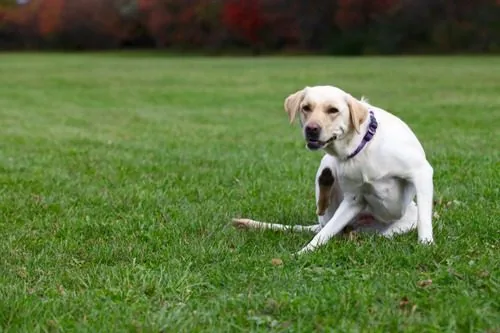Why is My Dog Growling?
Does your dog growl a lot? Is it hard for you to figure out why? Would you like to be able to recognize when your dog’s growling may be something to worry about? If any of this sounds like you, then you’re not alone. Many dog owners have trouble reading their dogs’ body language and social cues when it comes to growling.
In this article, we’ll explore some of the most common causes of growling behavior in dogs. You’ll find information that may help you narrow down the potential cause of your own dog’s growling, too. Let’s get started.

Dog Aggression
Most of the time, when a dog growls, humans automatically believe the cause is aggression. This is not always the case, but aggression can certainly be a potential cause of growling as well. You can usually tell if your dog is growling out of aggression, because his body language will let you know.
If your dog has wide eyes, is showing his teeth, and is standing very still while growling, aggression may be the cause. And of course, if your dog seems to be trying to bite or chase after another dog or animal, aggression may be the cause here as well.
Territory Guarding
Many dogs are very territorial. Your dog’s territory may include your home and yard, but it might also extend to your car, your regular dog park, and even you yourself! If your dog feels as though some part of his territory is being threatened, he may start growling as a warning to his perceived threat.
This type of defensiveness is ideal for some situations, but most of the time, dogs are a little bit mistaken when it comes to territory guarding. For example, your dog may see the mail carrier as a threat to his territory, which may lead to growling every day when the mail arrives.
Resource Guarding
Resource guarding is very similar to territory guarding, but it is not quite the same. Resource guarding involves protecting resources or perceived resources, such as food, water, treats, and toys. Some dogs may go so far as to include their beds or blankets in this type of guarding, too.
Many dogs will growl if they feel someone or something is trying to take their resources away from them. This behavior can quickly lead to snapping and biting, especially if you need to try to take something away from your pet.
Anxiety and Fear
Although less commonly seen with anxiety and fear, growling can still sometimes be caused by these underlying problems, too. If your dog’s growling seems to only occur when he hears fireworks or thunder, or when he has to ride in the car, then it may be related to anxiety or fear.
If your dog’s anxiety and fear are manageable, there isn’t anything you really need to do about this problem. However, if your dog growls and becomes aggressive due to anxiety or fear, talk to your vet about putting your pet on an anxiety medication.
Pain
Pain may lead to growling behavior in dogs as well. Some dogs whine when in pain, and some hide. If your dog is guarding a part of his body that hurts, he may growl, especially if you try to touch him or get too near him. This is a warning to let you know that he’s hurt and needs to be left alone.
For this reason, it can be difficult to get an injured dog safely to the vet. Be cautious when handling a dog who is in pain, as he may be more likely to snap or bite.
Play
Finally—and most commonly—play may contribute to growling behaviors as well. If your dog gets very involved in a game with you or with another dog, he may growl along with playful behaviors such as bowing and chasing. This type of growling is perfectly normal, and is nothing to worry about.
Pay close attention to your dog’s body language if he growls in play. Watch for signs that his playfulness might be shifting to aggression. Most of the time, this will not happen, but it is important to keep an eye on your dog in this situation.
Conclusion
There are many potential reasons why your dog may growl. Most of the time, growling is a normal part of canine behavior, and if you can pinpoint the cause, you’ll be well on your way to a better understanding of your pet.
If you suspect your pet is growling due to pain, fear, or anxiety, it is a good idea to talk to your vet for more information. Additionally, if your dog’s growling seems to have no known cause, your vet may be able to help you get to the bottom of the issue.
Recent Posts
About The Village Vets
The Village Vets is a network of animal hospitals based in Atlanta, GA and the surrounding area. We offer honest, excellent service to our clients in a comfortable, friendly atmosphere. To learn more about our locations and how we can better serve you and your pet, click the button below.
Share This Post
Recent Posts
About The Village Vets
The Village Vets is a network of animal hospitals based in Atlanta, GA and the surrounding area. We offer honest, excellent service to our clients in a comfortable, friendly atmosphere. To learn more about our locations and how we can better serve you and your pet, click the button below.



